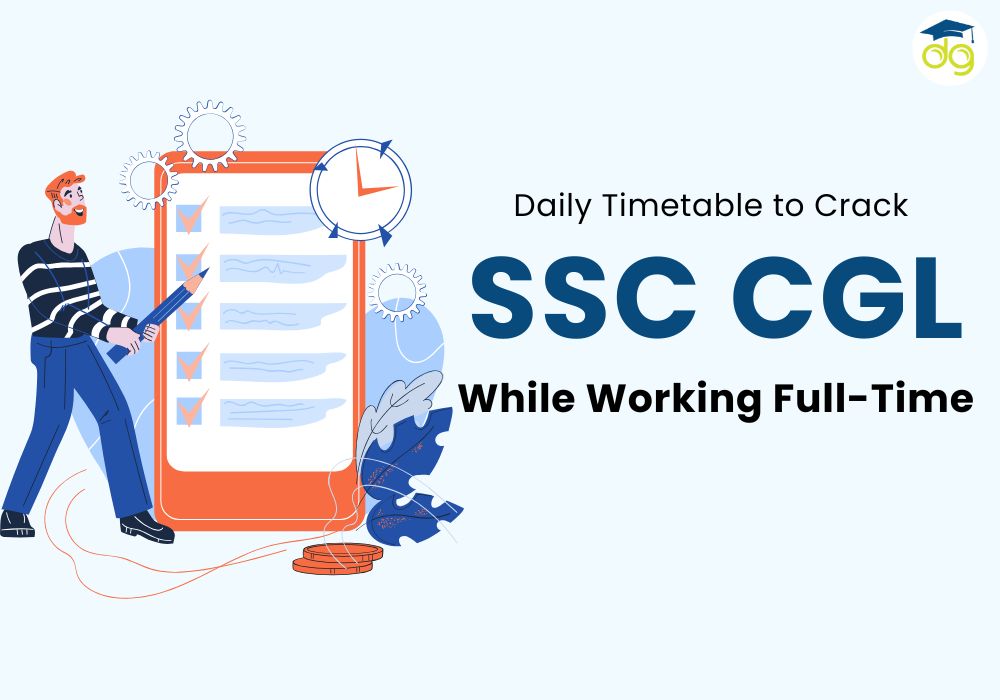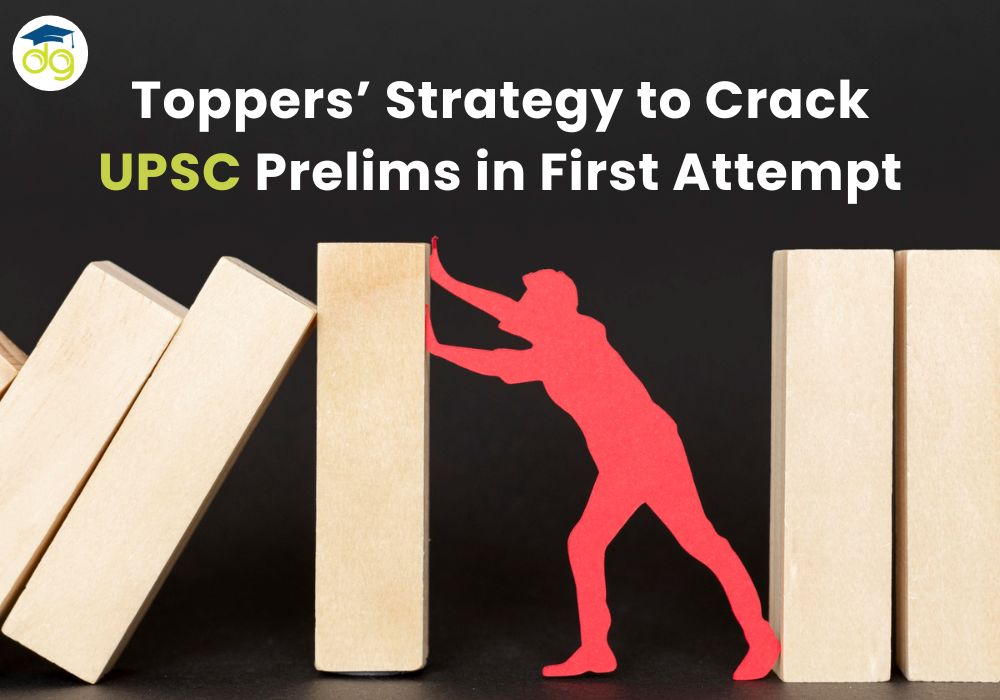Beginner’s Guide: How to Start Preparing for CAT from Scratch
Step-by-step CAT preparation plan for beginners with or without coaching
Preparing for the CAT exam from scratch can feel overwhelming at first, especially if you're new to competitive exams or coming from a non-math background. But thousands of aspirants crack the CAT every year, many without any prior coaching or background in business studies. So if you're wondering how to start your CAT preparation journey, this guide will walk you through everything you need—step by step.
Why Preparing for CAT From Scratch Is Totally Possible
Let’s begin by busting a common myth: you don’t need to be a genius or a top student to clear CAT. What you do need is consistency, clarity, and a solid plan.
CAT (Common Admission Test) is not just about intelligence. It's more about smart preparation, clear fundamentals, and effective time management. Anyone—yes, anyone—with the right approach can crack CAT and secure admission to a top B-school.
Step-by-Step Strategy to Start CAT Preparation From Scratch
1. Understand the CAT Exam Pattern
Before you open any book, know what you’re preparing for. Here’s the basic exam pattern:
Section | Number of Questions | Duration |
| Verbal Ability & Reading Comprehension (VARC) | 24 | 40 mins |
| Data Interpretation & Logical Reasoning (DILR) | 20 | 40 mins |
| Quantitative Ability (QA) | 22 | 40 mins |
| Total | 66 | 120 mins |
This format may vary slightly year to year, but the structure remains largely the same.
2. Create a 6–8 Month Study Timeline
You don’t need to study 10 hours a day. But you do need to be consistent. Here’s a sample timeline for 6–8 months:
Months 1–2: Concept Building
- Focus on clearing basics for Quant, VARC, and DILR.
- Spend 1–2 hours daily.
- Read newspapers like The Hindu or Indian Express daily.
- Start solving basic arithmetic and logical reasoning problems.
Months 3–4: Practice & Speed Building
- Start solving sectional tests.
- Increase study time to 2–3 hours/day.
- Focus on time management.
- Start solving RCs daily.
Months 5–6: Mock Tests & Full-Length Practice
- Attempt 1 mock every week.
- Analyze your performance deeply.
- Revise key concepts.
- Identify your weak areas and improve them.
Months 7–8: Fine-tuning & Strategy
- Take mocks twice a week.
- Final revision of formulas, tricks.
- Avoid new topics.
- Work on stress and time handling.
3. Know What to Study: Booklist
Start with the right resources. Don’t overload yourself with 10 books per subject. Stick to tried and tested ones.
Quantitative Aptitude:
- Arun Sharma’s Quantitative Aptitude
- RS Aggarwal (for beginners)
- NCERT Class 6–10 Maths (only for basics)
Logical Reasoning and Data Interpretation:
- Arun Sharma’s DILR
- Puzzle books (optional): Logical Reasoning by Nishit Sinha
Verbal Ability and Reading Comprehension:
- Norman Lewis – Word Power Made Easy
- How to Prepare for VARC by Arun Sharma
- Read editorials from newspapers
4. Build a Daily Routine
Even 2 hours a day is enough—if used wisely.
Sample Routine for Working Professionals/Students:
- 7:00 AM – 8:00 AM: Reading comprehension or vocabulary
- 8:00 PM – 9:00 PM: Quant practice
- Weekends: 3–4 hours for mock tests and revision
Sample Routine for Full-Time Aspirants:
- Morning: 2 hours of Quant + RC practice
- Afternoon: 1 hour DILR
- Evening: 1 hour revision or sectional test
Section-Wise Preparation Strategy
VARC (Verbal Ability and Reading Comprehension)
- Read articles every day – editorials, blogs, essays.
- Practice para jumbles and summary-based questions.
- Don’t skip Reading Comprehension. Practice 2–3 passages daily.
- Build a strong vocabulary by reading, not just mugging words.
DILR (Data Interpretation & Logical Reasoning)
- Start with basic puzzles and sets.
- Practice graph-based and table-based sets.
- Don’t aim for speed initially—aim for accuracy first.
- Time yourself gradually.
Quantitative Ability (QA)
- Brush up school-level basics: percentages, ratio, algebra.
- Practice 10–15 questions daily.
- Learn tricks and shortcuts once basics are strong.
- Group topics: Arithmetic, Algebra, Geometry, Number System, Modern Math
Common Mistakes to Avoid
- Starting with mocks before concept clarity
- Ignoring VARC because it “looks easy”
- Studying without a timetable
- Following too many sources
- Comparing your prep speed with toppers
Additional Tips From Toppers
- Stick to one or two sources and revise them thoroughly.
- Analyze mocks deeply. Know why you got an answer wrong—or right.
- Take care of your mental and physical health.
- Don't skip revision days.
- Take breaks but come back stronger.
Importance of Consistency
The biggest difference between an average aspirant and a topper is not intelligence—it’s consistency. Even if you’re studying for just 1.5 hours daily, doing it without fail over 8 months puts you way ahead of others.
Consistency builds habits. And CAT rewards discipline.
How to Start If You’re a Beginner With Weak Math or English
Don’t worry if your basics are poor. Many toppers started from scratch.
For weak math: Stick to NCERTs. Solve each topic slowly. Focus on clarity, not speed.
For weak English: Read one editorial daily. Summarize it in your own words.
Join a peer group or mentor circle for doubts and motivation.
A 3-Month Beginner Plan (If You're Starting Late)
Even if you start late, you can still make it. Here’s a fast-track 3-month plan:
Month 1
- Quant basics: Arithmetic + Algebra
- DILR basics: 2 sets/day
- RC: 2 passages/day
- Weekly: 1 sectional test
Month 2
- Quant: Add Geometry + Number System
- DILR: Increase to 3–4 sets/day
- RC: Focus on accuracy + timing
- Weekly: 1 full mock
Month 3
- Focus on full mocks
- Revise key topics
- Analyze test results
- Practice weak areas only
Mental Preparation: Handling Self-Doubt and Peer Pressure
CAT prep isn’t just academic—it’s emotional too. You’ll face days where you’ll feel dumb. That’s normal.
Tips:
- Don't compare your scores with others.
- Take short breaks when burnout hits.
- Celebrate small wins like finishing a topic or improving a mock score.
- Talk to other aspirants. Build a support system.
Make Reading a Habit, Not a Task
Reading is the foundation for VARC and even DILR sometimes. Here’s how to make it natural:
- Start with topics you like—sports, history, fiction.
- Move to serious articles—editorials, analysis pieces.
- Create a reading log—track what you read daily.
The more you read, the easier CAT becomes.
When to Join a Coaching or Test Series?
Coaching is optional. Test series is not.
- Join a test series after 2–3 months of prep.
- Join coaching only if you lack structure or feel lost.
- Use free resources first—YouTube, Telegram groups, PDFs.
FAQs
1. Can I crack CAT without coaching?
Yes, many aspirants do it every year. All you need is a clear plan, good resources, and consistency.
2. How many hours should I study daily for CAT?
Start with 2 hours and increase gradually. Quality matters more than quantity.
3. Is 6 months enough to crack CAT?
Yes, if you’re consistent. Many toppers have cracked CAT in less than 6 months with focused study.
4. Which section should I start with?
Start with the one you’re weakest in. Most find it useful to begin with Quant or VARC.
5. How many mocks should I take?
Aim for 20–25 full-length mocks before the exam. Analyze each one properly.
Conclusion
You don’t need to know everything on Day 1. You just need to start. Bit by bit, it all comes together.
Start your journey with patience, discipline, and focus. Don’t wait for the perfect moment. And when you feel stuck or lost, remember—it’s okay. Everyone starts somewhere.
For more exam strategies, guidance, and expert tips, visit Skoodos Bridge. It’s a space designed to help students like you connect with real-time mentors, resources, and insights to move ahead in your exam journey.
Keep going—you’ve got this!
Categories
Archives
- August 20251
- July 202524
- June 202524
- May 202526
- April 202530
- March 202523
- February 202513
- January 202523
- December 202429
- November 20246
- September 20245
- August 202422
- July 202415
- May 20249
- June 202424
Similar Posts

How to Score 650+ in NEET 2025 Without Coaching or Tuition
by Skoodos Bridge

Prepare for Banking Exams Without Quitting Your Full-Time Job
by Skoodos Bridge

Daily Timetable to Crack SSC CGL While Working Full-Time
by Skoodos Bridge

Toppers’ Strategy to Crack UPSC Prelims in First Attempt
by Skoodos Bridge

Beginner’s Guide: How to Start Preparing for CAT from Scratch
by Skoodos Bridge

Crack JEE Main in 3 Months While Attending Full-Time School
by Skoodos Bridge

Top 10 CLAT Coaching in Mumbai for the Academic Year 2024-25
by Skoodos Bridge

30-Day IBPS PO Study Plan to Crack the Exam on First Attempt
by Skoodos bridge

Best Books for SSC CGL Preparation 2025 – Tier-wise Guide
by Skoodos bridge


Leave a Comment